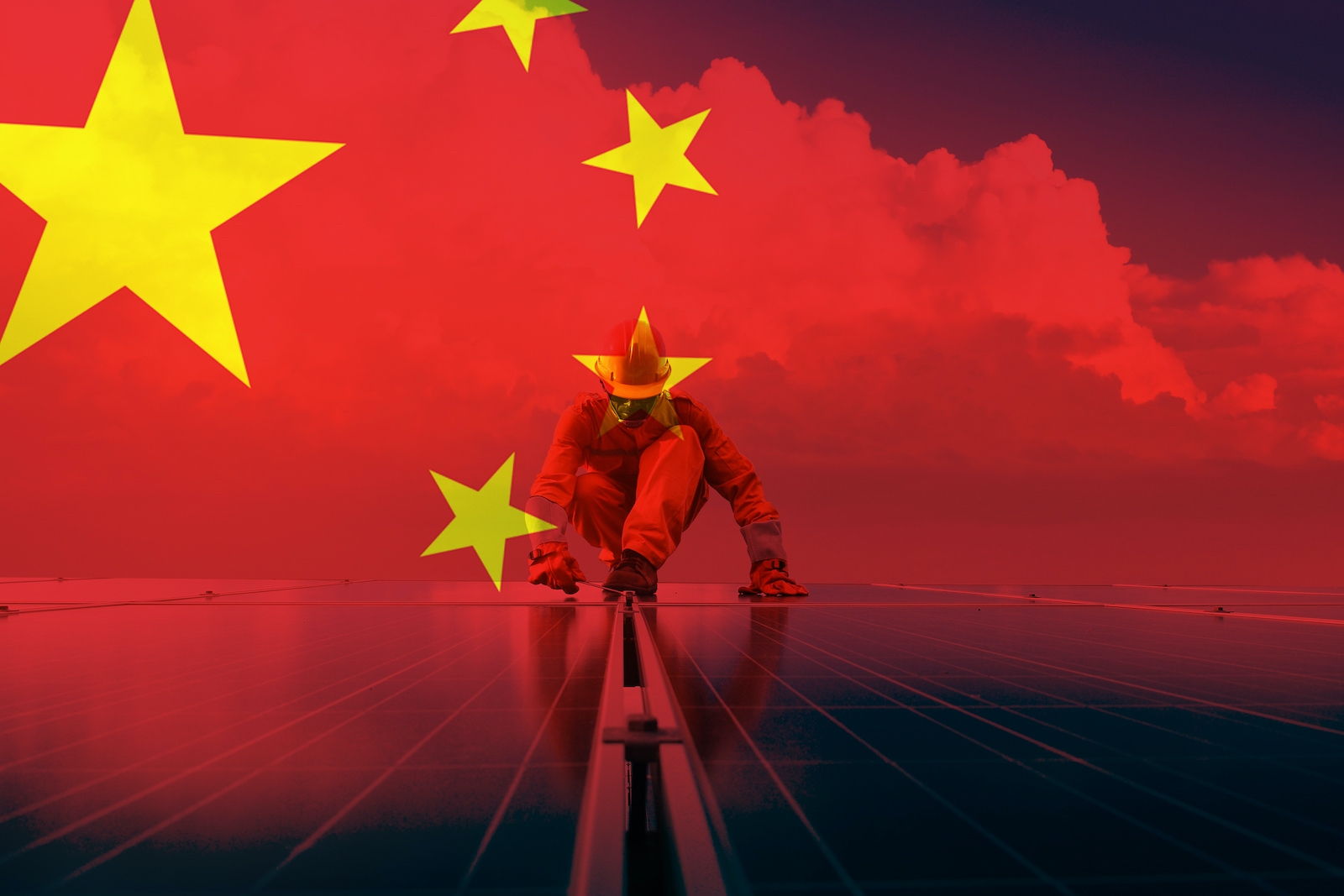
Solar Power is Dirtier than America Thinks
Americans are installing more solar panels than ever. A nationwide shift towards electricity generation using solar photovoltaic (PV) panels will be supported by Biden’s Build Back Better policy as it creates more clean American energy jobs and expands clean energy tax credits. But most of the PV America is investing in is far dirtier than it should be. Why? China.
Coal-fired electricity use and forced labor are widespread in Chinese PV manufacturing practices. This is a critical problem for Americans and other global PV markets because in 2019, 80% of the world’s PV panels were manufactured in China.
From an environmental perspective, the use of dirty electricity is the primary problem in PV production. Chinese solar panel factories are predominantly powered by electricity generated by burning coal. Coal is the most greenhouse gas and pollutant generating fossil fuel, and producing solar panels in China creates around twice as much carbon dioxide as making them in Europe.
So why are so many PV panels being produced with coal-derived electricity? Coal is cheap. Because manufacturing the core components of solar panels is very energy-intensive, companies logically choose facility sites with lower electricity costs. China’s Xinjiang Province has an array of government-supported coal-fired thermal electricity plants which produce vast quantities of cheap electricity, drawing many factories to the region.
That’s not the only problem. Within China, Xinjiang is not unique in its use of coal-derived energy for solar panel production, but the top-producing province also has often been in the news as the center of targeted government-directed human rights abuses on the local Uyghur Muslim population. These human rights abuses reportedly include forced labor, accusations of ethnic cleansing regimes, and mass imprisonment of large segments of the population. All of Xinjiang’s PV factories have directly reported their participation in Uyghur “labour transfer” programs or are supplied by raw materials firms that have.
So why do Americans purchase so many panels from China? Costs of Chinese-made solar panels are, on average, far lower than those of American or European panels. Energy experts agree that U.S. political factors also play a role in the adoption of Chinese panels over similarly advantageous and affordable power sources such as nuclear energy. The Democratic Party, especially U.S. Representative Alexandria Ocasio-Cortez and California Governor Gavin Newsom, believe that investing in low-cost solar energy (which is predominantly sourced from China) will be in the country’s best interest despite compelling domestically sourced alternatives like nuclear energy. They believe this in part because of a phenomenon in economics known as the negative externality.

Negative externalities are un-reflected “hidden” costs of the manufacture of a good which are not represented in its purchase price and thus not immediately considered when companies and individuals make purchasing decisions. For Americans purchasing Chinese solar panels, these negative externalities are twofold: the cost of global climate emissions from the pollutive production of the panels, and the reputation and social cohesion costs triggered by inaction in the face of Uyghur human rights abuses which only indirectly impact Americans.
American politicians, individuals, and corporations support the adoption of solar energy for economic and moral reasons – because these groups believe that in the long term, costs and environmental damages from solar will be less than those of alternative sources. Solar’s “sustainable” label helps supporters feel impactful. Americans are buying solar panels because they believe they are doing good for themselves, their communities, and the world.
But the U.S. is not buying what it expects from China. Instead, Americans are only distancing themselves from the impacts of environmentally and socially harmful manufacturing. They are unconsciously prioritizing their own safety over that of others, exposing Chinese workers, vulnerable minority groups, and the international community to toxic and harmful practices with health and societal implications.
If America wants to generate clean energy responsibly, it cannot dirty the soils and peoples of other nations and must also recognize that these practices will have impacts on American soil later as well (through global effects of climate change).
The U.S. has a clear path ahead. It must set clear standards for imported goods, ensuring that all goods consumed, not just produced, in the U.S. are responsibly made. It must source solar panels from companies who produce electricity with minimal fossil fuel use – for example, those in regions where utilities produce large quantities of solar, wind, or hydroelectric power for the facilities. It must also establish actionable human rights expectations that promote the consumption of products that are free of direct involvement in abuses.
Responsibility also lies significantly on the Chinese firms and their government that has established and perpetuated these low-cost manufacturing practices. China must cease allegedly violating the basic freedoms of its Uyghur citizens and must work towards a reduction of coal usage nationally, especially on products marked for export. It is, after all, not in China’s best interest to pollute its own backyard and oppress its own people in the name of producing “green” products.
All this implies significant market intervention, and to the extent that negative externalities are at work, economic and political research shows that such intervention is necessary. But companies and consumers can make better choices when sourcing their materials and move the global solar supply chain away from coal and alleged forced labor. Through the establishment of standard operating procedures that prioritize environmental and social responsibility, Chinese and international corporations can avoid involvement in these harmful acts. Institutional and business consumers can adopt higher standards in their procurement policies, pledging to meet basic criteria for all consumed products regardless of where they are made.
With engagement from the government, companies, and purchasers, the solar energy market will shift away from harmful practices and advance further towards its mission: making the world a cleaner, cheaper, and more sustainably electrified place for everyone.

